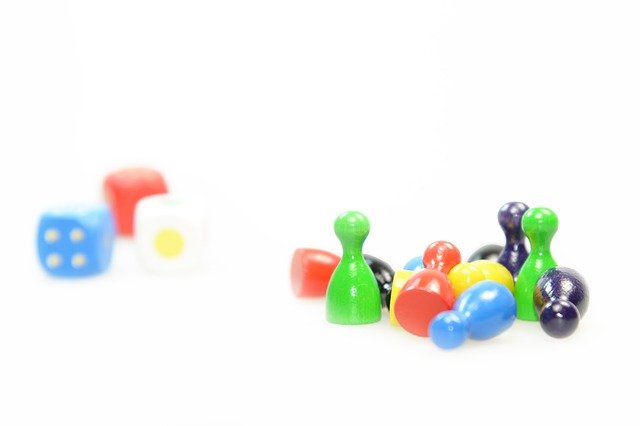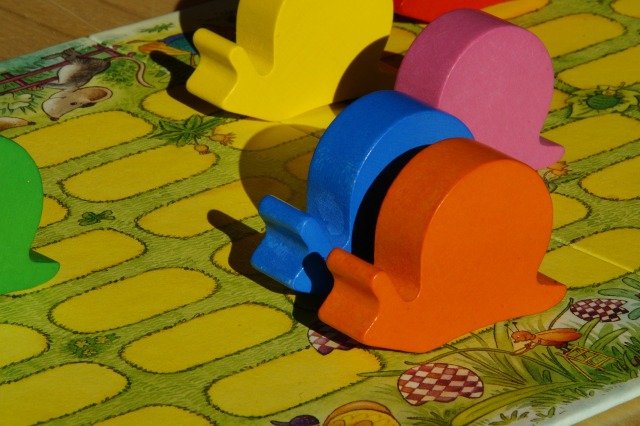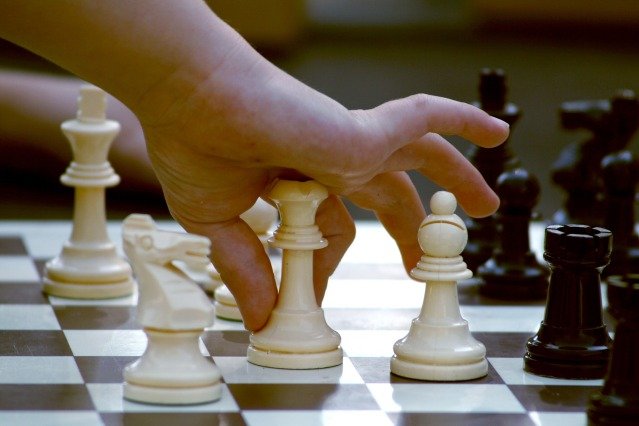Playing board games with children can be more than just fun. With just a little intentionality on our part, they are one of the best tools for building positive character.

Ground Rules
We have some unspoken game rules at our house.
- If you quit this game, you don’t get to play the next game and you lose Mom’s immediate attention. Ooooo, harsh!
- It is ok to be sad when the game seems hopeless. Sad is different than mad. It is not ok to be mad.
- We end the game by congratulating the winner with words or a high five.
- We play by the rules. If you can’t do that, you can’t play.
- Baby the babies, but make sure they are actually babies and not capable children that just can’t deal.

Patience/Taking Turns
It is sooooo hard for children to wait for their turn. Board games don’t always move quickly, and children are just not cool with other people getting turns too!
Take as much time as needed with each child. It will be hard for the other children, but they will learn. Give a gentle reminder that you are helping Susie right now, so you are unable to help them. You may have to implement Ground Rule #1 many times before the child can wait, but that’s ok. Guess what – they’ll figure it out. The child will appreciate having your full attention on their turn and everyone has more fun when each child understands the game.
Perseverance/Attention Span
I’m not winning, so I quit.
I don’t allow my children to move from one game until the current game is over. This has built perseverance and attention span. If they are adamant that we end the game early I agree, but Mom moves on to something that does not give them attention. If they want my attention, they need to stick with the game to the end. This may seem harsh, but it is effective, and it doesn’t involve yelling, shaming, or manipulation. I may give them my attention again after 10 minutes of folding laundry, but that is long enough to correlate persevering through the game = more mommy time, which seems to be the goal of every child.
I also give the child the option to come and go in the games, especially if they need time to deal with angry emotions, with the caveat that the game does not stop for them. They miss as many turns as they choose and can come back at any time, but they do not get to make up their missed turns. Obviously this does not work in a 2 player game. In Ground Rule #2, if a child is sad about their hopeless situation, I do allow them a few seconds to collect themselves or get a hug. I do not tolerate angry and mean behavior. That child will be asked to leave the game and come back when they can play nicely.
Because I encouraged my boys’ perseverance and attention span, my 2 year old son was able to keep up in Crazy 8’s. I would take it with us to public places when we had to wait (doctor office, auto shop) and people were amazed that we were able to pass the time happily with both boys ages 2 and 5 sitting and playing a card game. Don’t be surprised if your little one soon is able to play games require long attention spans.

Problem Solving/Strategy
It came to pass that my 5 year old son consistently beat me at crazy 8’s. I thought it was luck until it happened too often. I watched and learned that he had a strategy. Seriously. At 5. He had a strategy that I had never considered before , and he whooped up on me. Once I used his strategy against him the winning became more even.
Once the child is old enough to help facilitate the game (be the banker, deal the cards) they will engage more when it is not their turn. Once they are engaged during others’ turns, they will begin developing strategy based on what else is played. You can begin cultivating this ability at an early age. My favorite game for this is memory. When it was my turn, I would mention that they should pay attention in case they remember where the other one was – I didn’t make them look, but once they found my suggestion to be helpful and got the instant reward of a match, it became a habit.
Gracious Winning
You don’t know who the winner is until the game is over. You don’t know who the winner is until the game is over. You don’t know who the winner is until the game is over. Repeat.
Children love to be ahead, and my boys often bragg, “I’m winning! Ha!” to which I respond...well, you know. It seems that every time one of them declares and early victory, they lose. They are allowed to celebrate their victory by giving everyone high fives and cheering, but they are not allowed to taunt the other person or belittle their strategy. We often review the game and recall the close calls in which the other person almost won. Plus, if you play enough games, each person will win at some point.
I let young children win about half of the games. Now that my boys are older, I have to try to win. If we let children win all the games, all the time, we are depriving them of learning. They will never be a gracious winner if they cannot empathize with the losers.
Gracious Losing
When children lose games their sadness is real, and their disappointment is real. I don’t agree that it is “only a game” and doesn’t matter. The game may not matter, but their feelings do, and how we teach them to deal with the disappointment is the character building opportunity. This is a combo of Ground Rules #2 and 3. The goal is to train the child to give out joyful high fives and words of congratulations to the winner. Allow the losing child time to be sad and cry and give them a hug, saying “that was a fun game, but I know it is hard to lose. Perhaps you will win next time.” This often peaks their competitive spirits enough to want to play again, but there is a catch. In order to play again, they have to congratulate the winner, usually with the phrase, “Good game. Would you like to play again?”
If they child gets angry about losing and refuses to be nice, don’t press it at first. They may need to win a few times before they no longer feel like everything is unfair and the world is always against them.